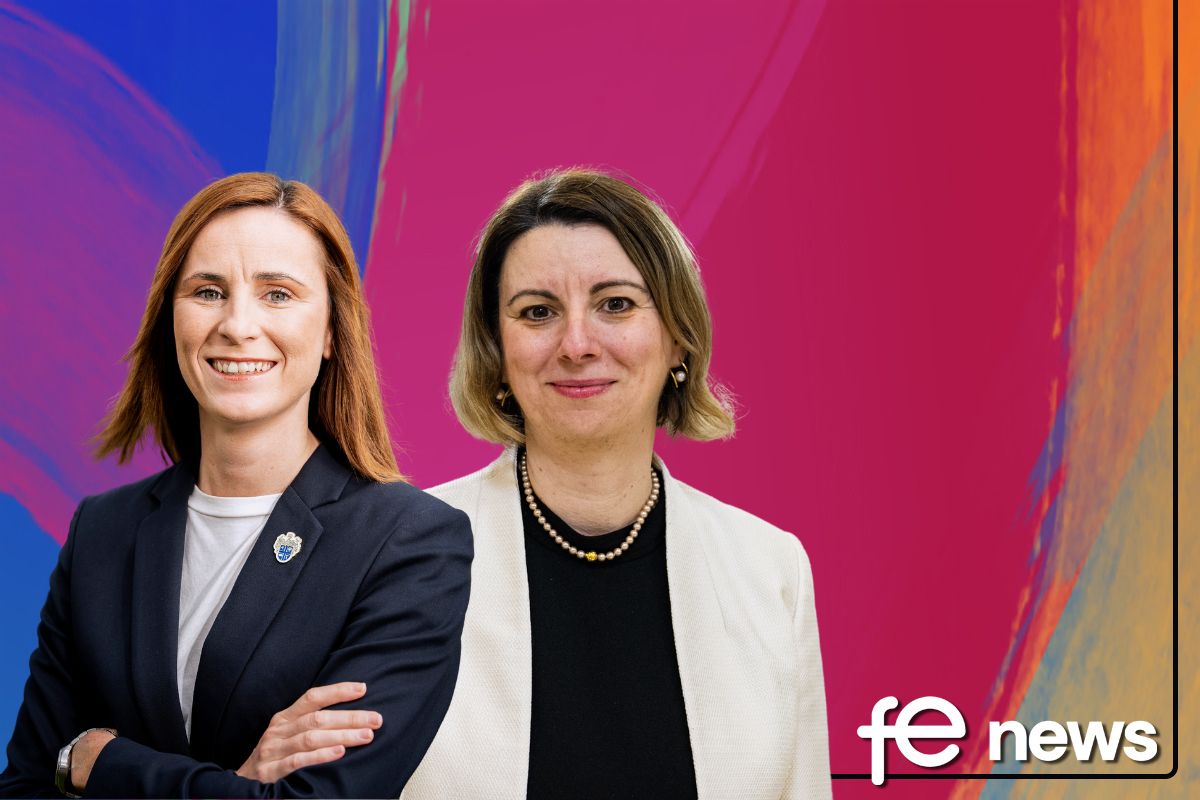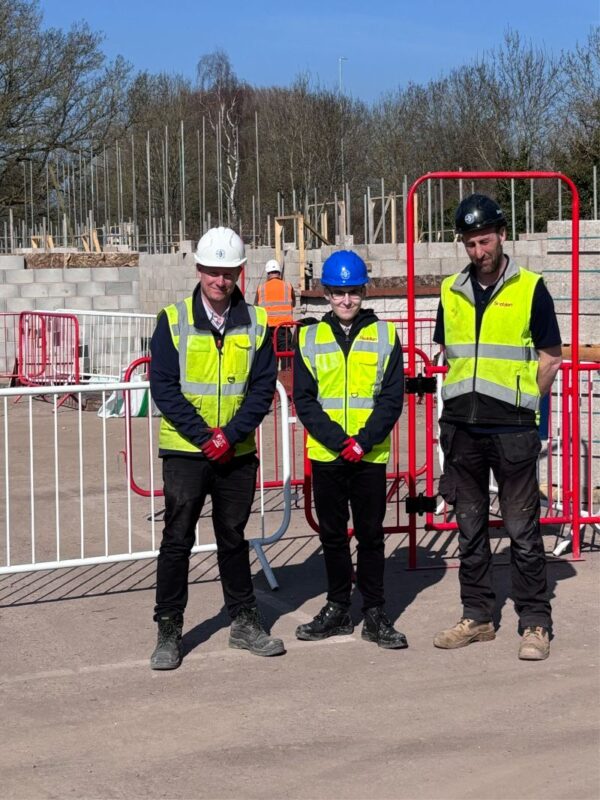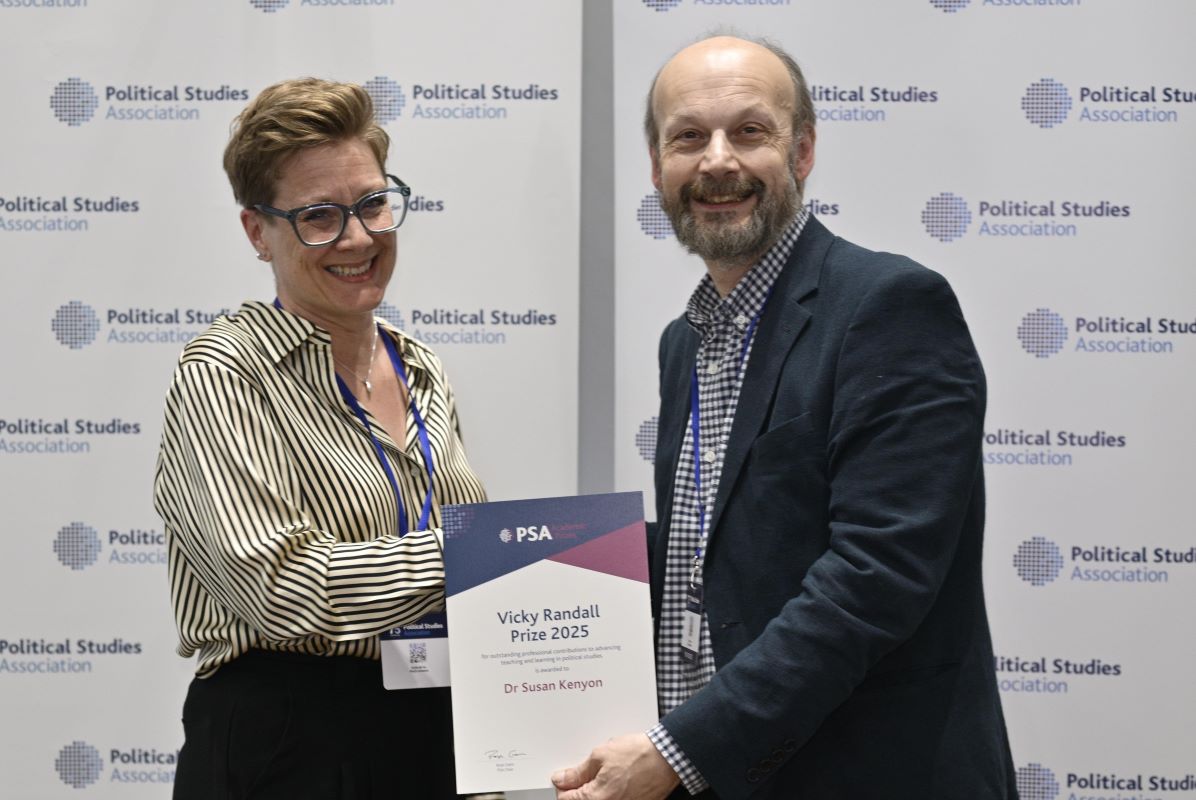Inclusive leadership and culture in the further education and skills sector: Inclusive Sector

We’re continuing our inclusive leadership ‘in conversation’ series with Dr Katerina Kolyva, CEO of the Education and Training Foundation, and Professor Jo Maher, Principal and CEO at Loughborough College, recently appointed as Loughborough University’s Pro Vice Chancellor for Sport. In part two they discuss the importance of inclusive working practices and what an inclusive sector looks like.
What inclusive practices do you see working well within the sector and what can we improve?
JM: I think if you’re truly getting it right, when you walk into an organisation, you just feel it. It’s intangible, but you know in your gut that things feel right.
As well as working with Investors In Diversity we also became a trauma informed college, which is about removing adverse childhood experiences and barriers for learners joining the college. It involved training all staff and setting the cultural tone of the organisation. We did some psychometric work with our Board of Governors and executive leadership team to really understand everyone’s approach to work – what does a good day look like? What does a bad day look like? How does that affect the teams around you?
It’s about seeking individuals’ strengths and looking at how do you turn a strength into a super strength. You might be a super dynamic and cheerful person, and that’s great, but you might not be good at processes. So how can you create a team where you can blend different strengths and make them gel? We’ve had to look at it in a holistic way, and I think for me that’s the key. It’s not in isolation.
An example of where we hadn’t done well was not having enough diverse products in our hairdressing salons. So we looked at our procurement and supply chain as well as the curriculum. For me it’s about holistically analysing each aspect of your business and having a strategy for each part.
It’s about that feeling in an organisation – do I feel welcomed? Have I got what I need? It then just becomes a natural part of your business.
KK: I’ve worked in many sectors, and I believe that the further education and skills sector is the only one that I can confidently say drives social mobility. I think sometimes we forget this. In my first five months in my role at the ETF, I’ve been out and about talking to sector leaders and colleagues that deliver the training and what I’ve noticed is that social mobility is really apparent.
But I also think as you move up the rungs of the ladder into a leadership role in many organisations, you don’t always see the level of diversity that you would expect. I’ve noticed it in the NHS too – you walk into a GP practice, community centre or a hospital, and you see massive diversity in the staff. But you go into the boardroom and you don’t see it – it’s a bit like that in our sector.
When I walk onto a college campus, when I start an apprenticeship, when I walk into a pub or care home, where people are learning – how do I make sure we can see that diversity? I think there’s more work we need to do as leaders to support everyone with their career progression, to help them thrive, be the best in their field and on their social mobility journey.
It’s about using the right language that people relate to, and that what they see around them makes them feel included. It’s also about showing strong allyship. I love it when I see men in a room talking about women’s rights or when I see LGBTQ+ colleagues in the room talking about straight rights. It’s not only about what we perceive to be a minoritised group, but also about that global majority.
What does an inclusive sector look like to you?
JM: Nationally we’ve got a big job to do on gender pay, and an inclusive sector is one that tangibly removes barriers around pay. In colleges we’re seeing female senior leaders that are doing well. But we also see more female applicants in some of our lower paid roles such as facilities and estate management, customer services and administration. We’re still seeing traditional and stereotypical demographics applying for particular roles. We need to better understand why this is, so that we can change it.
We need to create safe spaces for diverse opinions. We live in a society where everyone’s opinionated about everything, and there’s a difference between being opinionated and listening and having an authentic conversation. It’s still important that people feel outraged about discrimination, but I feel that we’re losing the skill to listen to different views. We’ve got to create safe spaces to have those debates.
We want a sector that’s focused on human values such as integrity, trust, honesty, and respect. For me it’s important that we’re a values driven sector that truly values progression, that supports people and starts to tangibly remove barriers in an evidence-based way.
KK: Our sector is extremely rich in terms of all the different people we support – rich in diversity, where learners can now learn in so many different settings, in so many different ways, with people from so many diverse backgrounds. For me a truly inclusive sector is one that recognises the diversity of the sector itself.
We have a vast breadth of providers and settings in our sector delivering fantastic work – large and small organisations, well known and some not so well known, independent training providers, small charities, adult centres etc. It’s about making sure we deliver for the entire sector, shining the light on all the great work being done by everyone, for everyone.
An inclusive sector for me is one where everyone has access to workforce development opportunities, and it’s not limited to just those organisations that are larger or who have the resources to offer it. Larger organisations may be able to offer something different or something tailored to the individual, whereas smaller organisations may only be able to offer mandatory training. How do we make high quality CPD available to everyone?
It’s also important to move the debate on inclusion from anti to pro. I’ve been very enthused about the Black Lives Matter movement and how the debate about being proactively anti racist in education is becoming even more important. But I think we will only achieve this when we are pro-race and there is a shift from saying these are all the challenges we’re grappling with, to being positive about ethnic inclusion.
JM: Language plays a big part in being inclusive and we’ve seen a shift in the language we use. For example, we don’t have a “grievance policy”, we now have a “resolution policy”. It’s these subtle tweaks in the language we use that changes the tonality of what we’re trying to achieve.
People want to be as inclusive as possible but are sometimes afraid of getting it wrong. How can sector leaders encourage more diversity, equity, inclusion and belonging within their organisations?
JM: I think it’s about trust. My background is in sports psychology, and I’ve learned that any intervention you’re going to do – if there’s no trust there, you’re on a hiding to nothing. It’s about how do we create that trust? How do we authentically deliver on the things that we say we’re going to deliver, even when it’s difficult? How do we focus on those human values that create that trust environment?
I think the fear comes from people worrying about getting it wrong. But in my experience, people understand when you’re open and honest and if it’s a genuine error or not.
I remember being a twenty-two-year-old teacher in the sports department at Loughborough College, and we had a relationship at the time with the Royal National Institute for the Blind (RNIB). We had learners with lots of different visual impairments and one of the students that I was working with was called Dan who was ninety five percent visually impaired. I remember being in the staff office when he knocked on the door, opened the door and asked, “is Jo there?”. My colleague said “yes, she’s over there” and pointed in my direction. They then realised what they had done, and Dan just burst out laughing! He understood that it was an authentic mistake and from that we asked Dan how he wanted us to describe locations of people and places.
I remember at the time the college put the room numbers on the doors in braille. In my entire time, I didn’t see one student use braille. It just didn’t work for them, that’s not how they navigated around. There were lots of guide dogs, they were brilliant at getting people around, but we hadn’t asked the students “how do you want to be taken around?”.
So for me it’s about getting it wrong, not being afraid to fail, and if you do it authentically, it removes the fear, you’ve just got to ask. If leaders aren’t seen to do that, and if leaders aren’t seen to admit when they’ve got it wrong and learn from it, we’re not going change the culture.
KK: I would say is it’s OK to get it wrong, but make sure you don’t upset someone and bring the right level of humility. Recognise you got it wrong, apologise when you need to, ask questions, and listen. We get things wrong every day in other areas and we get excused, but we feel that we’re not going to be excused if we get it wrong when it comes to inclusion. I would say it’s better to get it wrong than do nothing.
We all develop as individuals as a result of our interactions with family and friends, through school, work, society, our neighbourhoods and communities, through relationships, and we’re programmed to understand right and wrong. But we can be fearful of things that are new or different, for example engaging with people you may have never engaged with before. It’s about accepting you’ll get things wrong sometimes and asking how to get it right next time.
JM: For senior leaders there is the fear of becoming the next headline, when the one time you got it wrong is reported on but the many times you might have got it right isn’t mentioned. There are many examples now of how this can be career ending, and the leader fears for their job. We need to be really honest about some of the consequences for leaders in this space. It’s now so easy the second there’s an accusation for it to be reported on before there’s a fair and impartial investigation.
That generally wouldn’t happen to other staff members because the HR processes would ensure that it was private to the organisation and the individual, and there would be a fair and impartial investigation. But when it’s a leader in the organisation, the media could report on it before the investigation has happened. Even if they were completely innocent, they could be unemployed before that’s happened because of the pressure on them.
I do think we need to really look at the role of the media and reporting in this space. Of course, there are things in the public’s interest that need to be reported because they’re just thoroughly wrong and we’ve got to protect people. But then it’s the other side of that coin where it perpetuates the inertia because of the fear from the leader of getting it wrong and losing their job as a result. It’s a really challenging thing to solve.
By Dr Katerina Kolyva, Chief Executive, Education and Training Foundation & Professor Jo Maher, Principal and CEO at Loughborough College, and recently appointed as Loughborough University’s Pro Vice Chancellor for Sport
FE News on the go…
Welcome to FE News on the go, the podcast that delivers exclusive articles from the world of further education straight to your ears.
We are experimenting with Artificial Intelligence to make our exclusive articles even more accessible while also automating the process for our team of project managers.
In each episode, our thought leaders and sector influencers will delve into the most pressing issues facing the FE sector, offering their insights and analysis on the latest news, trends, and developments.











Responses